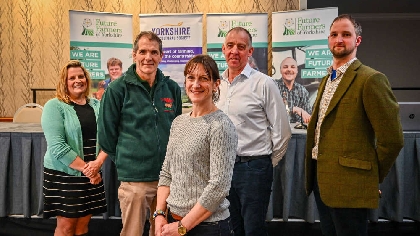
Farming’s pursuit of a profitable and productive balance in a new era of environmentally incentivised government payments was discussed at the Future Farmers of Yorkshire’s Spring Debate.
Entitled ‘Nature and Food: Finding The Right Balance’ and supported by the Yorkshire Agricultural Society, the event at the Great Yorkshire Showground brought farmers and other industry professionals together, along with a stellar panel of speakers from across Yorkshire and beyond, to examine ways forward during a particularly unsettling period for British agriculture.
Months of rainfall and the transition between agricultural policies are impacting farming’s finances, and the debate in Harrogate came just before DEFRA (the Department for Environment, Food and Rural Affairs) announced limits to its new nature incentive scheme for farmers following concerns that its Sustainable Farming Incentive risks marginalizing food production in favour of payments for environmental measures on farms.
Mike Powley who farms 350 acres at Green Hammerton near York with a suckler herd of 120 spring calving cows, cereal crops and beans, said he has concentrated on the synergies between his arable and cattle enterprises to nurture his own farming balance.
Mike explained he tries to be self-sufficient, producing all the feed on the farm that the cows need, whilst embracing regenerative agriculture principles to harness soil health and yields. He takes a minimal tilling approach, maintains soil “armour” with diverse cover crop rotations, keeps living roots in the soil year-round, and the cattle’s manure “kickstarts” the soil’s biology.
Mike said: “This is a no-brainer way of farming. The Government is now paying us for all of this. I don’t think there is a balance to be struck (between food and nature). I think they go hand-in-hand and going forward I think we are going to require nature to help us farm.”
Jo Franklin, a Nuffield Farming Scholar, and partner Rob, farm 2,000 arable acres, 1,000 acres of grass, 2,000 Stud Romney sheep and 350 milking ewes in Hertfordshire. They have swapped the plough for a direct drill, grow catch and cover crops that are grazed as part of arable rotations and have built five per cent organic matter in the soil in five years at their Kaiapoi farm enterprise.
Jo said: “We must adapt, be resilient, ever flexible, identify your weaknesses and your businesses weakness and look at how you can address them, and find the people near you who are doing things profitably. You have the information about your farm, you have to be brave and work a new system.”
Bernie Davies, Rewilding and Regenerative Land Manager of Denton Park Estate near Ilkley, explained how, under new ownership of the Estate, he is tasked with producing equal or greater quantities of food, whilst sequestering carbon and increasing biodiversity. This required a new land management approach with the Estate having been used for sheep farming and pheasant shooting.
Bernie said: “I thought I could either produce more food or produce more ecosystem benefits, but I thought I probably couldn’t do both. I have put quite a lot of time and effort into coming up with a plan, and I now think I can.”
His plans include managing “regen grazing in blocks” with cattle and sheep, a hay meadow to produce winter supplies for the Estate’s livestock, rewetting moorland to store more water and slow its flow downhill, free-roaming pigs and cattle, and introducing beavers in a controlled area. The Estate has been accepted into the initial phase of the Government’s new Landscape Recovery Scheme.
Paul Temple, who farms on the Yorkshire Wolds and is Vice Chair of the Global Farmers Network, said he had “reframed” how he looks at soil. Having adopted no-till conservation agriculture, he said he was excited to see changes in his soil that he had “never imagined”.
He said: “We are going through eight months of rainfall like I have never seen before, I don’t know whether our soils are more resilient and I’m watching them as they merge into this spring to see how they cope, but I know in terms of soil movement and soil health we are in a better place to cope with some of the extremes we are going to increasingly see.”
Paul said the balance between food and the environment is “genuinely subjective”, adding: “What really frustrates me is that this balance isn’t mapped against the pressures of population, because it’s population; people not farmers, that are exerting this pressure on finding the right balance.”
Drawing the debate to a close, Spring Debate Chair Fiona Tweedie, Sustainable Farming Advisor at Kings Crops offered advice for those wrestling with how to adapt their businesses during a period of change, saying: “Every single farming situation is different and it’s really important to understand your own assets and what you have got. Take advice and look at what your neighbours are doing, but don’t necessarily replicate exactly, it has got to fit your system.
“Understand and record what you have got, because if you don’t measure it, you can’t monitor it, you won’t know if you are doing things better or not, and you can’t get the value out of it. Focus on what you can control, that is really the priority.”


 Settle College says transport changes will cost parents ‘hundreds of pounds a year’
Settle College says transport changes will cost parents ‘hundreds of pounds a year’
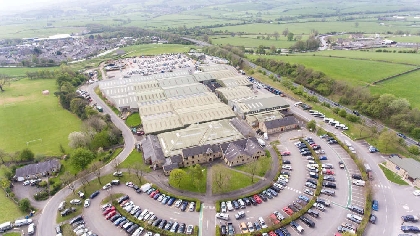 Council approves plan for state-of-the-art facilities at Craven College
Council approves plan for state-of-the-art facilities at Craven College
 A summer of free family fun in Skipton
A summer of free family fun in Skipton
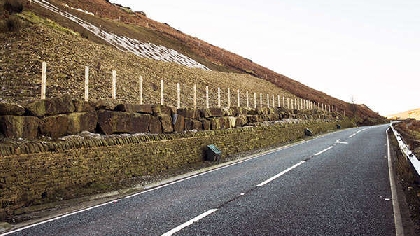 Opening of new road at A59 Kex Gill delayed
Opening of new road at A59 Kex Gill delayed
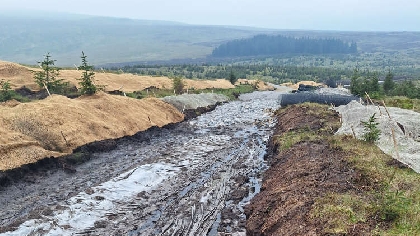 Calls to prosecute Network Rail over ‘vandalism of the highest order’ in national park
Calls to prosecute Network Rail over ‘vandalism of the highest order’ in national park
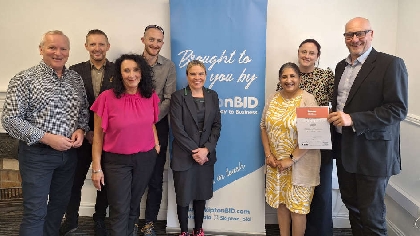 New Chairman for Skipton BID
New Chairman for Skipton BID
 ‘Significantly deteriorated’ platform canopies at Skipton Station to be refurbished
‘Significantly deteriorated’ platform canopies at Skipton Station to be refurbished
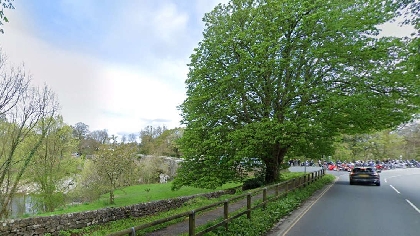 Visitors to Yorkshire Dales ‘do not know where to exercise dogs’
Visitors to Yorkshire Dales ‘do not know where to exercise dogs’
Comments
Add a comment